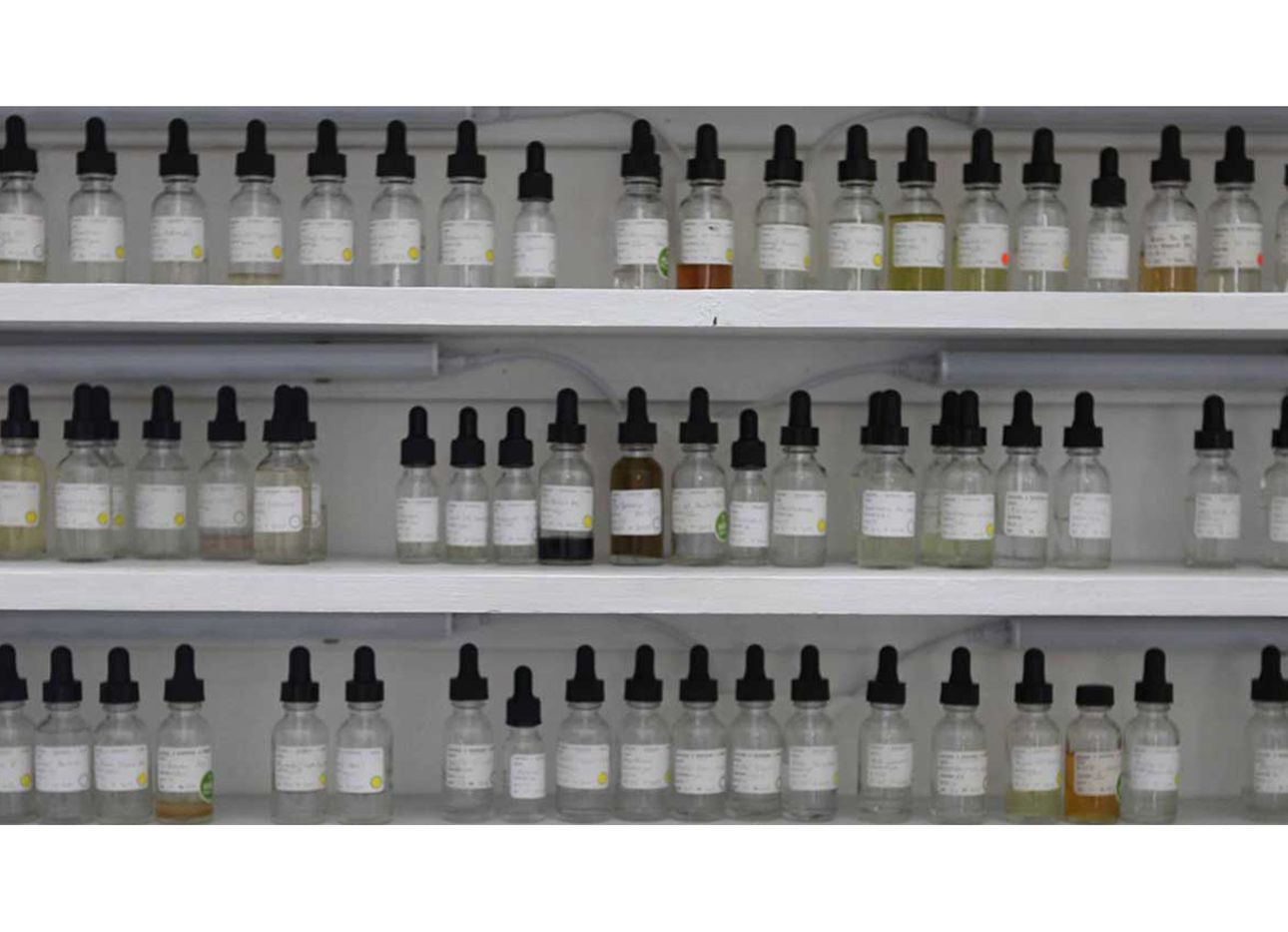
Nuri McBride Paves the Way for Broader Understandings of the Crafts and Cultures of Scent
For many, perfume provides a layer of color, texture, or inflection on top of our daily lives. The addition of scent can complete an outfit, project an image, or boost confidence. It can even serve as an olfactory form of protection. But for some people, scent offers something more. It can be seen as a container for culture and society—a portal into thinking about the world, and our experiences of it, in a new way. The Institute for Art and Olfaction (IAO), a decade-old Los Angeles–based nonprofit founded by Saskia Wilson-Brown, has become a magnet for people who think about perfume in exactly this way. “Devoted to access, education, and experimentation with scent,” the institute hosts workshops, classes, and lectures around the craft and culture of perfume.
“Scent and Society,” an ongoing series of programs organized by IAO, explores the multiplicity of perfume history by presenting olfactive history, research, and practices from around the world. Initiated in 2018 by perfumer, artist, and educator Dana El Masri, the series is currently curated by perfumer, writer, and educator Nuri McBride.
For McBride, who worked for many years as a lawyer in refugee services, thinking about perfume as a vehicle for culture came naturally. “I like to pick things apart and get to the base of them, and my training in law and political science was something that very easily translated to scent,” she says. “There’s a lot of power dynamics going on here, there’s a lot of cultural stuff that isn’t getting articulated, and there’s no one that’s really talking about these things.”
To bring these submerged histories into the light, where they can be considered, challenged, and discussed from multiple perspectives, McBride uses quarterly themes to guide her curation. The theme for the past quarter—which closed on June 27, with a conversation with independent perfumer Bharti Lalwani on the olfactory landscape of Mughal-era India—was “scent culture from below.” Taking the idea of “history from below,” which centers the experiences of everyday people instead of the rich and powerful, McBride’s programming covered a wide range of olfactory practices, from the colonial history of the fragrance trade, to conservation work to save frankincense, to the ways fragrance intersects with personal adornment traditions in Southwest Asia and North Africa.
For McBride, awareness of scent as a reflection of culture arrived early in life. Recounting a memory from childhood, she says, “I was with a group of women in my family and there was discussion of Mizrahi identity, Jews from the Middle East. My mother’s family is from Syria, so here in Israel, there’s this sense that you don’t fit in with the mold. You speak Arabic, you eat different food. There’s also a fear of Mizrahi female sexuality. Mizrahi women often get presented as ‘bimbos,’ or hypersexual, and I remember my family talking about this and being like, ‘This is why we don’t wear jasmine perfume outside.’ Even though it’s a huge part of our culture. My grandmother used to stick orange blossoms and jasmine down her bra so that she would be more natural!” She continues, “I remember thinking, There’s something going on here, this smell has different meanings. To me it’s my grandma, but other people perceive it in a different way.”
As McBride began imagining what her curation of the series might look like, she envisioned classes and talks that would offer viewpoints on scent from outside dominant cultures. “If someone wants to learn about the history of perfume, and they go and google that, what are they going to find? They’re going to find Coco Chanel, they’re going to find a very whitewashed, very PR-shaped version of that history,” she says. “And that’s not the full truth.” In pursuit of a more complete history, she shaped her curation around the idea of highlighting contexts and traditions that haven’t been widely recognized by the perfume industry. “French perfumery is fantastic,” she says. “But it’s just one small fragment of a much larger world, and most of that world has been suppressed.” Rather than overthrowing the dominant narrative, McBride says she wants the series to offer “a larger scope,” expanding attendees’ view of the history of scent culture.
When asked about her hopes for the program and any effects it might have on the fragrance industry at large, she speaks about democratization. “There’s so much more access to education,” she says of the industry today. “There’s so much more available online, and that’s changed the way the trade schools have approached things. They can’t hold the keys to the castle as tightly anymore.” “Scent and Society” is contributing to this work, catalyzing conversations around access, representation, and history in ways that will, she hopes, spread across the fragrance world. “These ideas aren’t things that we own,” she says. “We want to share them. The more educated the consumer is, the more people there will be who demand changes in language, like using descriptive words other than ‘oriental,’ or demanding transparency in supply chains. When you give people back their history and the context of their olfactive culture, they can take ownership over it, and then we won’t have to rely on the same five large companies. The industry can become much more diverse.”